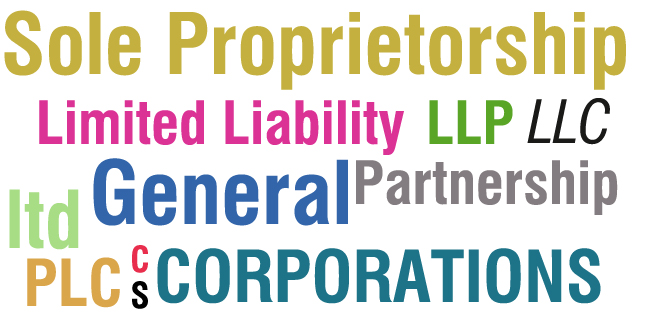
Starting a power washing business is exciting — the equipment, the branding, the first job booked. But before you roll out the pressure washer and start cleaning up driveways, you’ll need to make one of your most important decisions as a new business owner: What legal structure should your business take? 🧽🚿
This isn’t just legal red tape — your business structure affects how you pay taxes, how much personal liability you carry, and even how professional your business appears to customers. In this guide, we’ll break down the three most common options: Sole Proprietorship, LLC, and Corporation, so you can make the right choice for your future. 💡📈
🧍♂️ Sole Proprietorship: Simple but Risky
A sole proprietorship is the easiest and most common way to start a small business. It’s essentially just you, operating under your own name or a DBA (“Doing Business As”).
✅ Pros:
- Easy to start — no formal registration required in most states
- Low cost — little to no setup fees
- Simple taxes — income is reported directly on your personal return (Schedule C)
❌ Cons:
- No legal separation — if your business gets sued, your personal assets are at risk 🏠💸
- Limited credibility — some clients and companies may take you less seriously
- Harder to grow — can make it difficult to get business loans or bring on partners
Ideal For:
Those just testing the waters or working part-time with very little overhead.
Example:
You start “Dave’s Driveway Cleaning” with $1,000 in gear and land a few weekend jobs. At this stage, a sole proprietorship may be all you need.
But the second someone slips on a wet patio you cleaned, you’ll wish you had more protection… 😬⚠️
🧱 LLC (Limited Liability Company): The Popular Choice
A Limited Liability Company (LLC) combines the best of both worlds — simplicity and liability protection.
✅ Pros:
- Personal asset protection — your house, car, and savings are shielded from business debts and lawsuits
- Pass-through taxation — profits are still taxed on your personal return (no double taxation)
- Professional appearance — “XYZ Power Washing LLC” looks more legit than “John Smith” 👔
- Flexible structure — great for solo owners or small teams
❌ Cons:
- Costs more upfront — formation fees range from $50–$500 depending on your state 💰
- Ongoing requirements — you’ll need to file annual reports or renewals in most states
- Not completely foolproof — you still need insurance and good practices to stay protected
Ideal For:
Anyone serious about turning their power washing hustle into a full-time business.
Example:
You’ve got a website, commercial equipment, and a steady flow of jobs. Forming an LLC now gives you a credible brand and legal protection to grow confidently.
🧠 Pro Tip: Pair your LLC with general liability insurance to build a strong safety net.
🏢 Corporation (C Corp or S Corp): Best for Big Plans
Corporations are the most complex legal structure, typically suited for businesses that plan to scale big, attract investors, or hire employees rapidly.
There are two types:
- C Corporation — taxed separately from its owners
- S Corporation — avoids double taxation via pass-through treatment (with stricter rules)
✅ Pros:
- Strongest liability protection
- Potential tax benefits — particularly with S Corps (after making an IRS election)
- Better suited for outside investment, employees, and stock options
❌ Cons:
- Complex setup — requires articles of incorporation, bylaws, stock issuance
- More paperwork — separate tax filings, regular board meetings, corporate minutes 🧾
- More costly — both upfront and ongoing
Ideal For:
Power washing companies aiming to franchise, add multiple trucks, or bring in outside capital.
Most solo operators don’t need a corporation to start — but may consider converting later as the business grows.
🏁 Key Differences at a Glance
| Feature | Sole Proprietorship | LLC | Corporation |
|---|---|---|---|
| Setup Cost | Low | Moderate | High |
| Ease of Setup | Easiest | Simple | Complex |
| Tax Simplicity | Pass-through | Pass-through | C Corp: Separate / S Corp: Pass-through |
| Personal Liability Protection | ❌ None | ✅ Yes | ✅ Strongest |
| Scalability | Low | Medium | High |
| Credibility | Low | Medium–High | High |
💼 How to Choose the Right Structure
Here are some key questions to ask yourself:
- Am I just starting out or planning to grow fast?
→ If just testing, start simple. If building a brand, consider an LLC. - Am I worried about personal liability?
→ If yes (and you should be), skip the sole proprietorship. - Do I want to hire employees or raise money?
→ Consider a corporation, especially if you want investors later. - How much time and money can I invest in setup?
→ LLCs offer a great balance of protection, ease, and professionalism.
✍️ Steps to Get Started
If you’re ready to move forward, here’s what to do next:
- Pick your business name 🧼
- Register your LLC or Corporation with your state (usually via the Secretary of State website)
- Get an EIN (Employer Identification Number) from the IRS for taxes 🆔
- Open a business bank account — never mix personal and business money! 💳
- Get insurance — liability coverage is a must in this industry 🛡️
- Apply for licenses or permits if required in your city or county 📄
🔚 Final Thoughts
Your legal structure is the foundation of your power washing business. While it might seem like a technical detail now, choosing the right entity can save you from major legal and financial headaches down the road. 🧠💸
✅ If you’re starting part-time, a sole proprietorship might work
✅ If you’re all in — go with an LLC for flexibility and protection
✅ If you’re building an empire — talk to a CPA about incorporating
No matter which path you choose, make sure it aligns with your goals, growth plans, and personal risk tolerance. Because building a great business starts with laying the right groundwork.
Now go get that paperwork done — and get out there to start cleaning up your corner of the world! 🧼🏡🚀
Browse Amazon Here For Top Rated Power Washers And Accessories






